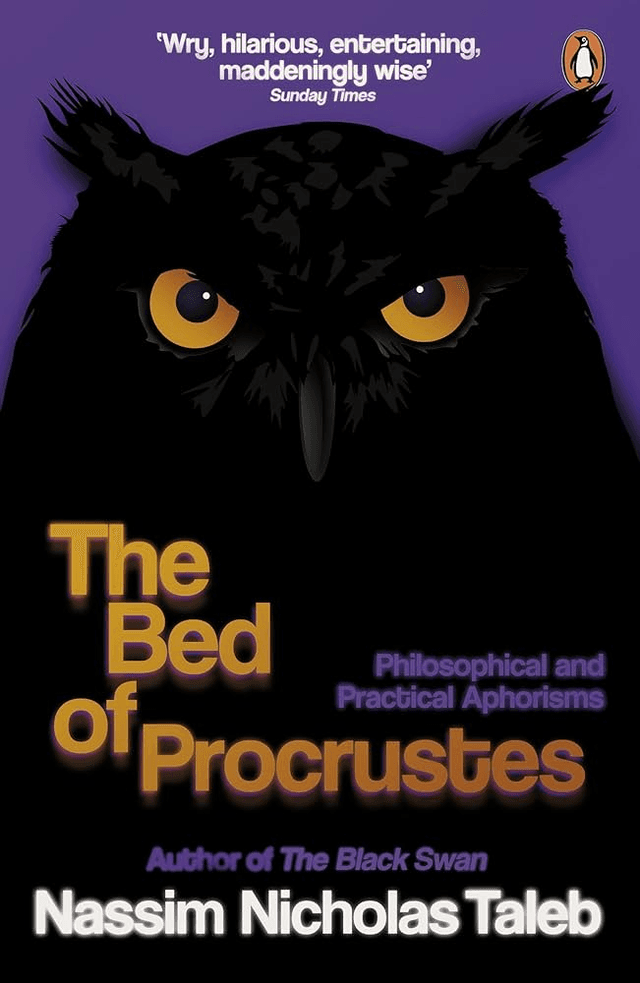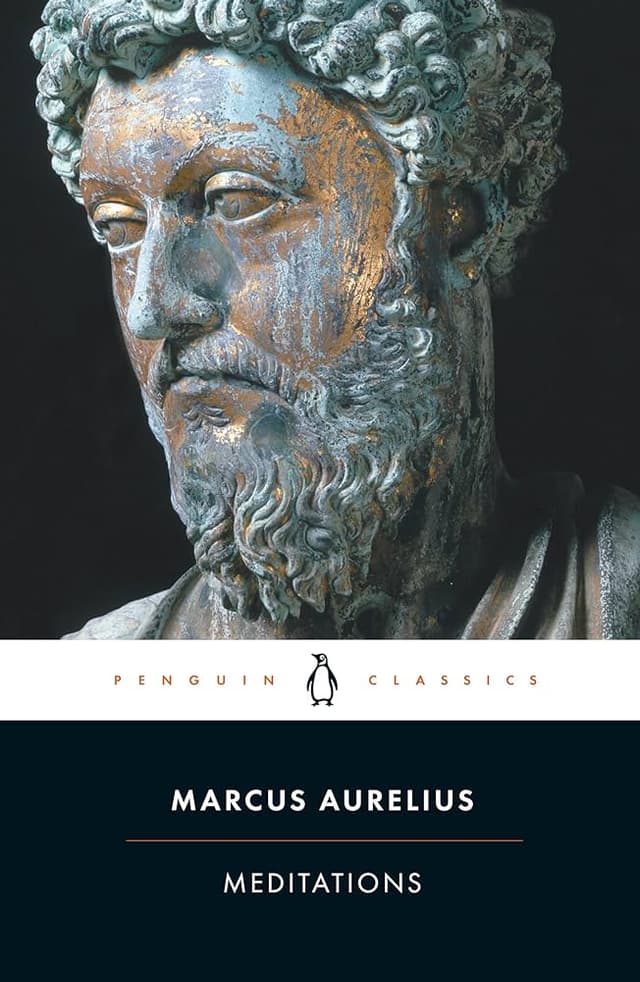The Bed of Procrustes: Philosophical and Practical Aphorisms vs. Meditations by Marcus Aurelius
The Bed of Procrustes: Philosophical and Practical Aphorisms
"The Bed of Procrustes" is a collection of aphorisms by Nassim Nicholas Taleb that distills his philosophical insights into short, thought-provoking statements. The title refers to the Greek myth of Procrustes, symbolizing the tendency to force things into unnatural conformity. Through these aphorisms, Taleb critiques modern society's flaws, biases, and misconceptions, offering a sharp, often humorous, commentary on topics ranging from knowledge and science to wealth and human behavior. This book is perfect for readers who enjoy deep, philosophical musings and appreciate Taleb's sharp wit and unconventional perspectives.
Meditations by Marcus Aurelius
From wikipedia: Meditations is a series of personal writings by Marcus Aurelius, Roman Emperor from AD 161 to 180, recording his private notes to himself and ideas on Stoic philosophy. Meditations are worth reading if only to get a glimpse at the thoughts of a man who lived a life in truly extraordinary circumstances of being a Roman Emperor. It's surprising how relevant the themes of his diaries are two thousand years later.


Reviews
Reviews
| Item | Votes | Upvote |
|---|---|---|
| Concise and impactful | 1 | |
| Witty and thought-provoking | 1 | |
| Covers a wide range of topics | 1 |
| Item | Votes | Upvote |
|---|---|---|
| May feel fragmented | 1 |
| Item | Votes | Upvote |
|---|---|---|
| Practical advice on personal conduct | 1 | |
| Historical insight into Roman times | 1 | |
| Written by a Roman Emperor | 1 |
| Item | Votes | Upvote |
|---|---|---|
| No cons yet, would you like to add one? | ||
Frequently Asked Questions
'The Bed of Procrustes' is known for its witty and sharp aphorisms that critique modern society, making it highly thought-provoking in a contemporary context. In contrast, 'Meditations' offers practical advice and insights from a historical perspective, reflecting on Stoic philosophy. While both books provoke thought, Taleb's work may resonate more with readers looking for modern critiques, whereas Aurelius provides timeless wisdom rooted in his experiences as a Roman Emperor.
'The Bed of Procrustes' covers a wide range of topics, including knowledge, science, and human behavior, through its collection of aphorisms. On the other hand, 'Meditations' focuses primarily on personal conduct and Stoic philosophy, reflecting the thoughts of a Roman Emperor. Therefore, if you're looking for a broader exploration of various themes, 'The Bed of Procrustes' may be the better choice.
'Meditations' offers significant historical insight into Roman times, as it is written by Marcus Aurelius, a Roman Emperor. This context adds depth to its philosophical themes. In contrast, 'The Bed of Procrustes' does not focus on historical context but rather on modern philosophical critiques. Therefore, for readers interested in historical perspectives, 'Meditations' is likely to be more enriching.
'The Bed of Procrustes' may feel fragmented due to its structure as a collection of aphorisms, which can lead to a disjointed reading experience. In contrast, 'Meditations' is a series of personal writings that, while also not a continuous narrative, provides a more cohesive flow of thought. Readers who prefer a more structured approach may find 'Meditations' easier to follow.
'The Bed of Procrustes' is a collection of aphorisms by Nassim Nicholas Taleb that distills his philosophical insights into short, thought-provoking statements. The title refers to the Greek myth of Procrustes, symbolizing the tendency to force things into unnatural conformity. Through these aphorisms, Taleb critiques modern society's flaws, biases, and misconceptions, offering a sharp, often humorous, commentary on topics ranging from knowledge and science to wealth and human behavior. This book is perfect for readers who enjoy deep, philosophical musings and appreciate Taleb's sharp wit and unconventional perspectives.
Pros of 'The Bed of Procrustes' include its concise and impactful nature, its witty and thought-provoking content, and the wide range of topics it covers. However, a con noted by some readers is that it may feel fragmented.
'Meditations' is a series of personal writings by Marcus Aurelius, the Roman Emperor from AD 161 to 180. It consists of his private notes to himself and his ideas on Stoic philosophy. The book offers practical advice on personal conduct and provides historical insight into Roman times.
Pros of 'Meditations by Marcus Aurelius' include practical advice on personal conduct, historical insight into Roman times, and the unique perspective of being written by a Roman Emperor. There are currently no listed cons for the book.
'Meditations' was written by Marcus Aurelius, who was the Roman Emperor from AD 161 to 180.



















